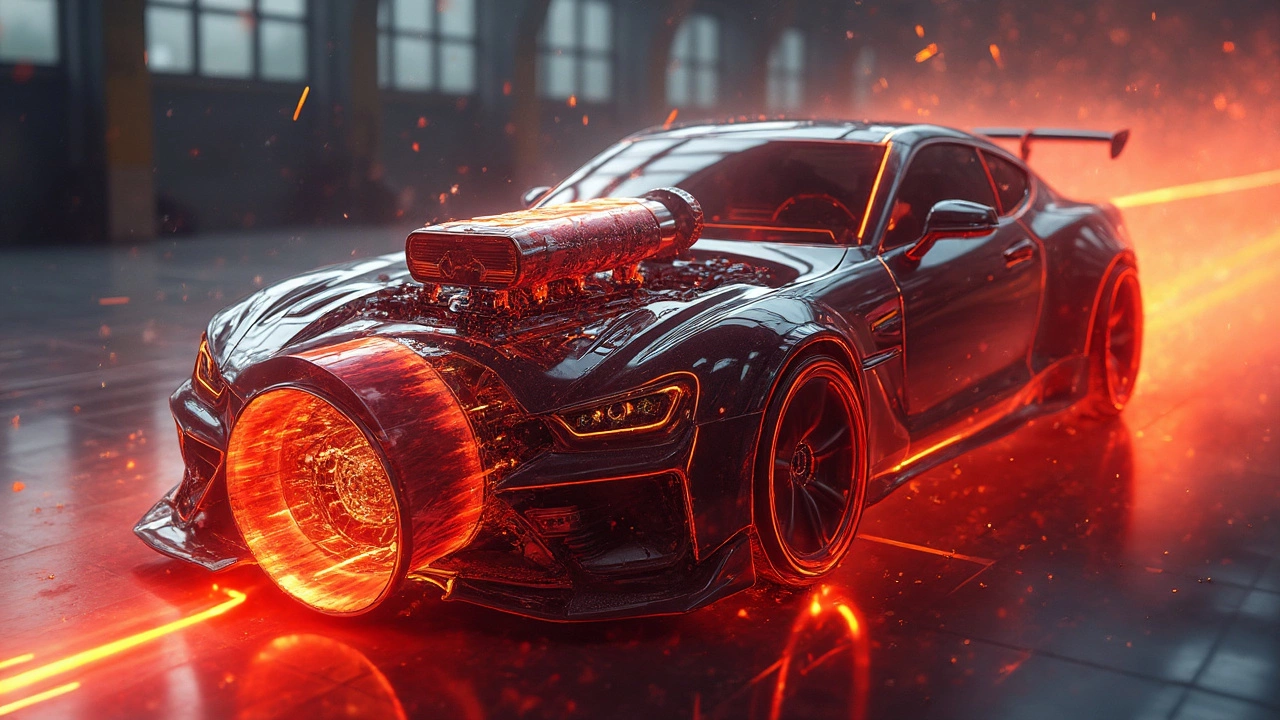When you hear someone brag about “500 hp,” they’re talking about the engine’s ability to do work – basically how fast it can push the car forward. It’s not magic, it’s a number that comes from how quickly the engine burns fuel and turns the crankshaft. More horsepower usually means quicker acceleration, but it also puts more stress on other parts, so you need a balanced approach.
Horsepower (hp) is a measure of power, not speed. Think of it like a person lifting a weight: the stronger the person (more hp), the faster they can move that weight. In a car, hp is produced by the combustion process, then sent through the drivetrain to the wheels. Two engines with the same hp can feel very different depending on torque, gearing, and weight. Torque is the low‑end pull that gets the car moving off the line, while horsepower is the high‑end pull that keeps the car climbing and top‑ending.
Why does hp matter? If you love drag racing, hill climbs, or just want a bit more zip on the highway, high hp can shave seconds off your times. But if you’re mostly city driving, the extra power might never be used and could even hurt fuel economy. That’s why most enthusiasts look for a sweet spot – enough hp to feel alive, but not so much that the car becomes a handful.
Before you splurge on a brand‑new engine, try these budget‑friendly mods that add real horsepower:
Remember, each upgrade interacts with the others. Pair a cold air intake with a tuned ECU for the biggest gain, and don’t forget to check that your clutch, brakes, and suspension can handle the extra load. For example, a lower‑stiff suspension from our “Coilovers vs Lowering Springs” guide can keep the car planted when you unleash more power.
If you’re serious about high hp, look at larger projects like a turbo or supercharger kit. Those can double your horsepower, but they also demand stronger internals, upgraded cooling, and sometimes a new transmission. That’s why most hobbyists start small, measure gains, and only go big when they’ve got the budget and a solid foundation.
Finally, keep an eye on local laws. Some regions restrict modifications that drastically increase noise or emissions. A well‑chosen exhaust, for instance, should still meet the “legal exhaust” criteria we discuss in our “Custom Exhaust Cost” post.
Bottom line: horsepower is just one piece of the performance puzzle. By understanding the basics and choosing smart, incremental upgrades, you can feel a noticeable power boost without breaking the bank or the car. Start with a cold air intake, follow up with a free‑flow exhaust, and watch the numbers climb. Then decide if it’s time for a tune or a bigger forced‑induction project. Happy building!

Performance air filters like K&N are popular among car enthusiasts looking to boost horsepower, but do they really deliver? This article dives into the mechanics of air filters, breaks down how they potentially increase power, and separates fact from myth. Discover if the hype is warranted and what actual benefits you can expect when installing a K&N filter. Get practical tips on using performance air filters effectively to maximize your vehicle's performance.